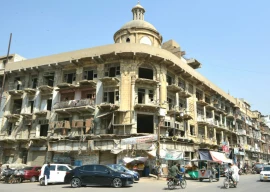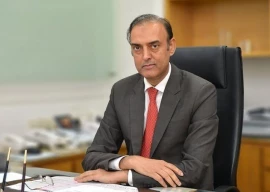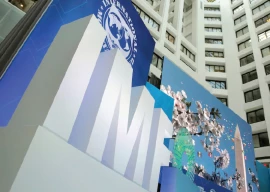
As a result, billion-dollar mega projects often attract a lot of scepticism when governments lack an iron-clad commitment to transparency and accountability in procurement practices. So corruption is the “elephant in the room” that needs to be addressed as it instills distortion in the economy by redirecting resources from productive activities to rent-seeking.
NAB’s anti-corruption campaign has been successful
But many people advocate that corruption is a necessary evil that speeds up bureaucracy and plays a role of “grease on wheels” for economic growth. In fact, corruption in public procurement is no longer regarded as a system failure: it is the de facto system.
Corruption in construction projects is getting sophisticated day-by-day and does not merely involve the unjust award of tender. In a typical corrupt project context, siphoning off of massive amounts of taxpayers’ money takes place throughout the project lifecycle – from project feasibility till its completion.
Many times, tender documents are made by a potential bidder that includes hand-tailored specifications. These technical requirements or TORs can get very detailed and specific - giving this favorite bidder an undue advantage over competitors such as the requirement of a special certification.
This mode of corruption is rife in planning ministries as their staffs are not very competent when it comes to preparing business cases, project charters and tender documents. These services are done for free by large bidders (especially foreign companies) to oblige ministries into awarding them a contract.
Furthermore, ministries disseminate these tenders with a very short deadline to exclude undesirable bidders who otherwise would have submitted a credible proposal.
Sometimes large contracts are split into many smaller contracts in order to avoid an open bidding process so that all these contracts could be awarded to subsidiaries of a single company.
This allows ministries to acquire goods and services through direct purchase without any open tender. In such cases, the engineer’s estimate is often overvalued – allowing the contractor to have a comfortable margin without any suspicion of favoritism.
Many infrastructure projects especially in Bal0chistan are done on a pilot basis due to the prevailing security situation. The considerable lower estimate at the time of project inception makes it easier to get the project approved from planning ministry but later project specifications are found to be incomplete and large variation orders are forwarded by contractors for approval.
Once a contractor has locked in, it becomes very difficult for the government to terminate the project as usually there is no ‘de-scoping’ clause in the contract. Moreover, poor quality in civil works is hard to detect as its consequences do not appear immediately especially when contractors are in collusion with supervisory consultants.
There is a dire need to modify Public Procurement Regulatory Authority (PPRA) rules on lines of modified United Nations Commission on International Trade Law (UNCITRAL) 2011 to incorporate negotiated procurement as a competitive form of public procurement as is the practice in the west including USA. At present, only sealed bidding is considered as competitive form of procurement as negotiated procurement and revision of proposal is not allowed as per rule 40.
It is also considered a ‘best practice’ that government agencies should be allowed to audit records of vendors and verify completeness of costs and pricing data which is not permitted in our law.
Anti-corruption policies yielding positive results
A reform agenda to contain corruption is by no means an easy task especially when it has become a “rule of the game” and comprises an institutionalized system that serves to benefit a tight sphere of elites. All the lining up at the trough – politicians who cut ribbons in red carpet events, the contractors who pour concrete on highways and kickbacks in the pocket of bureaucrats – they all do not want to change the rules of the game.
The writer is a Cambridge graduate and is working as a management consultant.
Published in The Express Tribune, July 10th, 2017.
Like Business on Facebook, follow @TribuneBiz on Twitter to stay informed and join in the conversation.



1732105641-0/BeFunky-collage-(78)1732105641-0-165x106.webp)


1732084432-0/Untitled-design-(63)1732084432-0-270x192.webp)










COMMENTS
Comments are moderated and generally will be posted if they are on-topic and not abusive.
For more information, please see our Comments FAQ